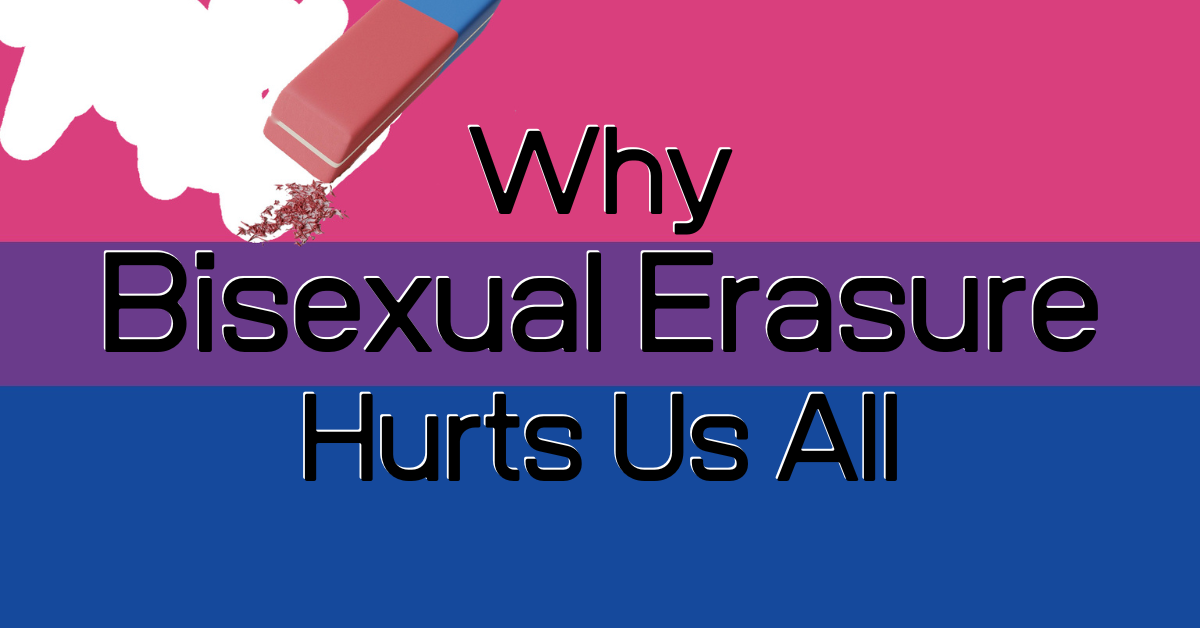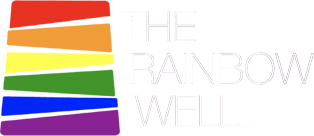Why Bisexual Erasure Hurts Us All
Why Bisexual Erasure Hurts Us All
by Jamie Arpin-Ricci

In what has been called “the first queer guide to Christian marriage- “Modern Kinship”- authors David & Constantino Khalaf offered practical and much-needed wisdom for queer Christians. Ranging from dating to a life beyond “I do”, the book explores the unique challenges 2SLGBTQIA+ Christians face in their pursuit of a life-long partner. In a section called “Challenging Geographic Limits”, they open with this:
“This is the hard truth: if you’re a single LGBTQ Christian who would like to be in a relationship with someone who shares your faith, chances are you’ll have to move. As with every rule, there are exceptions. But if you’re pinning your hopes on being the outlier, you’re increasing the difficulty of a battle that is sufficiently uphill already.”
Working with gay and lesbian Christians from across the country and beyond, my experience is that this has largely been true for far too many. Given that the field is already smaller than the sea of straight people, add the element of religion (an additionally divided context some times), and the idea of finding a partner could seem nearly impossible. After all, not everyone has the means and freedom to travel to simply date, let alone consider the implications of moving completely. For this very reason, many have given up the thought of a long-term relationship.
Yet as someone who identifies as bisexual (or pansexual or queer, depending on the context), I was frustrated by a dynamic that I see all too often that needlessly contributes to these problems. But before we move on, a few generalized definitions to set the stage:
Monosexuals:
Those who have romantic and/or sexual attraction to members of one sex or gender only, regardless of sexual orientation. Straight, gay, and lesbian people are generally in this category.
Non-monosexuals:
Those who have romantic and/or sexual attraction to members of more than one sex or gender expression. Bisexual and pansexual people are generally in this category.
This distinction can be helpful when talking about sexual orientation and identity, in part because it is often assumed by those outside our community that all gay and lesbian folks relate easily with bisexual folks. All too often, that assumption is shown to be untrue, with important impacts. This point is illustrated beautiful (if painfully) in this video by Graysons Crosbie:
What this video expresses so well is the all-too-common experience of non-monosexual and non-cisgender folks face in our own pursuit of identity and community. The pressure to conform through denial and erasure breaks us into pieces and pushes us back into the closet, denying so many of us the experience of wholeness, both as individuals and within relationships. And these pressures often come from within the 2SLGBTQIA+ community, which creates an added level of exclusion. This is bisexual erasure (or bi-erasure, for short). While many of you will be familiar with that term, let’s lay out a definition to be clear:
Bisexual Erasure:
The tendency to ignore, remove, falsify, or re-explain evidence of bisexuality (non-monosexuality), including the belief that bisexuality does not exist.
While I won’t go into detail about all the ways bi-erasure can happen, for me it has included the assumptions that I’m just gay but uncommitted; sexual greedy; in denial, confused, or just lying. The list could go on and on. Since we are often not safe in straight/cisgender circle, then also coming from gay and lesbian folks, it can feel as though there is nowhere to turn for support and understanding.
Suffice to say, bi-erasure is a real and harmful reality. I know countless bisexual people who have been overlooked or overtly rejected by potential gay and lesbian partners because of how they identify. I know many others who were bullied into re-identifying as gay or lesbian to even have a chance.
This erasure unquestionably harms the ones erased the most- it’s no surprise that studies show that bisexual folks are at higher risk of experiencing anxiety, depression, and suicidal thoughts- it also harms everyone else as well. Bisexual folk represent (conservatively) 40% of the LGBTQ+ community, yet are also significantly less likely to come out because of discrimination and erasure from both straight & gay/lesbian communities.
Yet the wider queer community is also harmed, losing a powerful addition in diversity, power, passion, energy, resources, and, yes, even dating potential. So while it is clear that everyone is harmed by bisexual erasure, let’s also recognize that everyone benefits from our embrace and inclusion.

